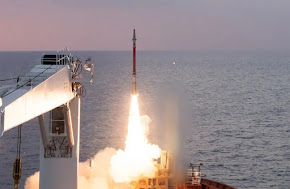Lately, a controversy started after Turkish President Recep
Tayyip Erdogan recited epic poems that sparked widespread outrage in Iran, with
many Iranian officials strongly rejecting any territorial claims against Iran.
However, the dispute was settled when Turkish Foreign
Minister Mevlut Cavusoglu called his Iranian counterpart Javad Zarif on
Saturday evening to assure him that his country respects the Islamic Republic
of Iran’s sovereignty and territorial integrity.
Turkey and Iran are two major neighbors with a rich history
and deep ties who have lived in peace for nearly 400 years. Cooperation and
mutual respect have always been a top priority.
Turkey and Iran are two major countries with solid-state
traditions, and two neighbors who have lived in peace for nearly 400 years
since the Treaty of Qasr-e Shirin (Zuhab) was signed in 1639.
Although, there have been disputes between these two states
through the course of history, cooperation and mutual respect have always been
a top priority.
President Recep Tayyip Erdogan attended the ceremonies of
Nagorno-Karabakh’s liberation from the occupation of Armenia, which had been
backed by Western imperialism.
During his speech in the ceremonies, he proposed a
six-country platform for the issues in the Caucasus, which Turkey, Iran,
Russia, Georgia, Azerbaijan, and even Armenia.
Unfortunately, instead of paying attention to this proposal
to unite West Asia, firestorms were blown over a poem that Erdogan read during
his speech, and the important point sadly got ignored.
There is need to understand very well that the possible
winners of the cooperation between Turkey and Iran, would not only be these two
countries but also entire West Asia. In case of a dispute between the two
countries the beneficiaries will be the United States and Israel.
Turkey, as a neighbor, respects Iran’s territorial integrity
and national sovereignty and has never pursued a policy that targets to disrupt
the Iranian territorial integrity, in its entire history. On the contrary,
Ankara has mostly pursued a policy that prioritizes the internal stability of
Iran.
On the issue of the nuclear deal, the Turkish government,
together with the Brazilian government, played as a mediator that protected
Iranian interests in the international arena and tried to put an end to the
imperialist approach towards Iran.
Turkey has continued its trade activities with Iran despite
all international pressures and embargoes, an indication of the goodwill and
the willingness of Turkey to cooperate.
Turkey, which has been fighting against the American puppet
PKK terrorist organization for nearly four decades, is pursuing a policy
against any movements that want to partition and weaken the countries of the
region, as part of the imperialist plans.
Unfortunately, there are some groups in Turkey that are not
comfortable with the cooperation between Turkey and Iran, just like similar
groups in Iran. These groups consist of Atlantic supporters, and/or those who
look at the world from a sectarian point of view. The way to neutralize these
groups would be through even deeper cooperation between Ankara and Tehran.
The good relations between the two countries and the
unchanging border for 400 years are the clear signs that the Turkish government
and the Turkish nation do not have the slightest problem with the territorial
integrity of Iran.
Any misunderstanding between the two countries makes it much
easier for the United States, Israel and their sectarian puppets to infiltrate
and cause friction between Ankara and Tehran. It is not a secret that Israel
wants Ankara-Tehran relations to collapse.
There is need to understand the statement from the Turkish
presidential spokesman Omer Celik saying "let us not make our enemies
happy". Turkey believes that the Iranian officials know that the winners
of a possible dispute with Turkey would be the United States and Israel.
Some groups in the region had been hoping for the election
of Joe Biden instead of Trump before the elections. Especially some opposition
parties in Turkey have welcomed Biden's election win. Some articles, praised
Biden's election victory, in connection with the nuclear deal with Iran.
It was only the methodology that changed with Obama, Trump and
Biden administrations, but the final goal of the US imperialism would still be
to rule over West Asia by destabilizing the area. Those who hope the United
States will change policy fail to understand the US foreign policy.
President Erdogan's proposal for a six-country platform in
Baku can be considered in this context.
The imperialist siege in the Eastern Mediterranean has been
growing and Israel, which now has the support of the West, wants to gather the
Arab countries under the name of "normalization", and put them into
an anti-Turkey and anti-Iran camp.
The nations of West Asia can frustrate this unholy alliance
of the imperialist powers with their own alliance. Turkey and Iran are the main
dynamics of a possible regional alliance, along with Russia.
If these countries are united against the US imperialism the
region from the Caucasus to the Eastern Mediterranean and the Middle East (West
Asia) can be stabilized. Otherwise, some radical nationalist and sectarian
perspectives will make it easier for imperialism to rule over the region.






